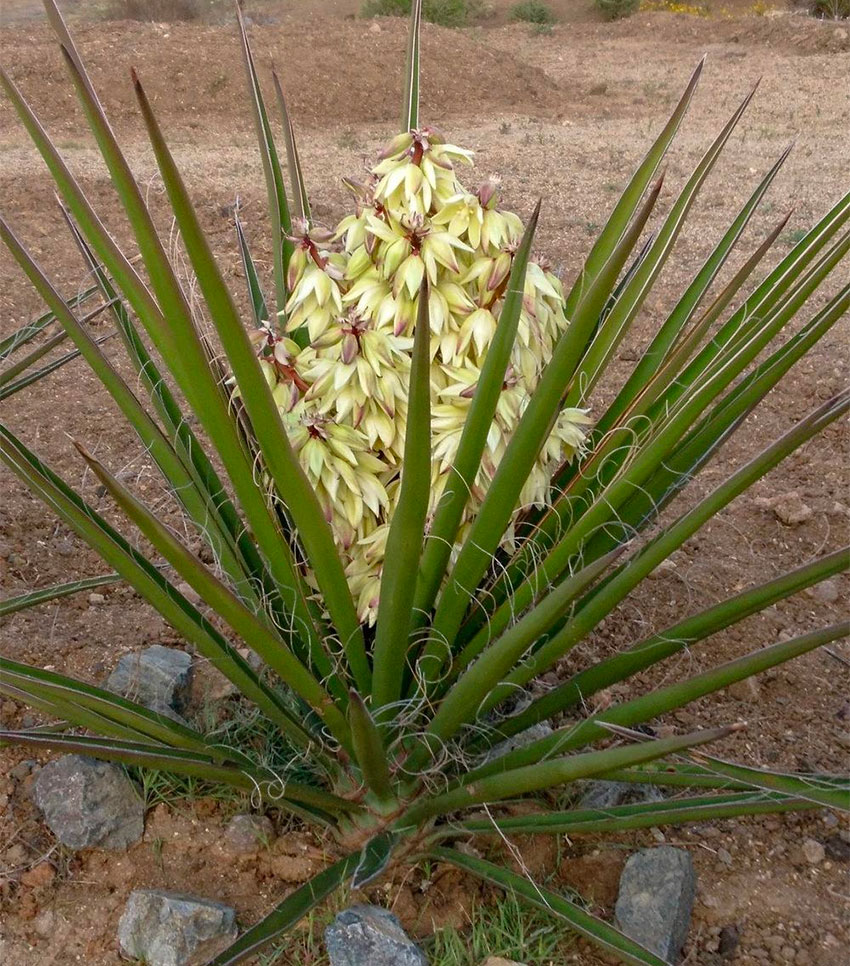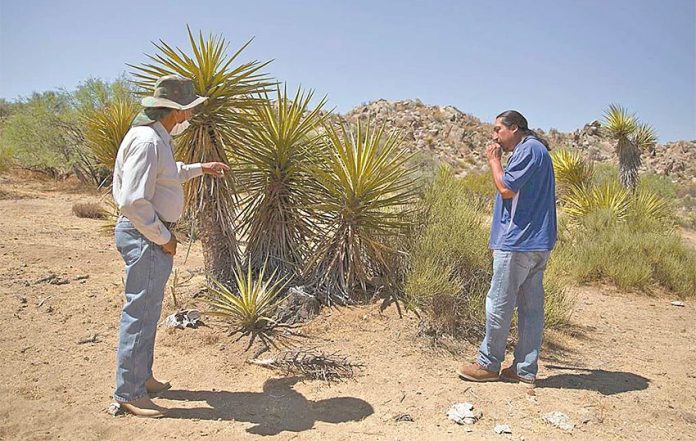What do totoaba, a species of fish prized in China for its swim bladder, petroleum pipelines and the Mojave yucca plant have in common?
All three are targeted by criminal organizations in Mexico.
While the illegal fishing of totoaba in the Gulf of California – and the resultant devastating impact on the vaquita marina porpoise – and the clandestine tapping of pipelines in states such as Guanajuato and Puebla have been widely reported, there has been much less focus on the theft and trafficking of yucca schidigera, a flowering plant native to the deserts of northern Mexico and the southern United States.
But criminal gangs have been stealing the plants and selling their stems for years.
Theft of the Mojave yucca is a major problem in the Trinidad Valley, located southeast of Ensenada in the northern border state of Baja California, where local residents call the plant’s stem “el palo de oro” or “the stick of gold.”
The nickname is derived from the stems’ value: they are exported to the United States, the Arab world and China, where yucca extracts are used in herbal products and pet food.
According to the federal government’s delegate in Baja California, the modus operandi of yucca looters is the same as that of other criminals who target products that can yield high prices abroad.
Jesús Alejandro Ruiz Uribe told the newspaper El Universal that armed men enter ejido, or communally-owned, land to steal yucca plants and later sell their stems to companies that export them. He said that authorities collude with the criminals, pointing out that officials don’t check whether they have permits to extract the plants and don’t investigate when environmental crimes are reported.
“It’s the same thing that happens with totoaba because it [the yucca plant] also … generates wealth,” Ruiz said. “We have to disband this network of criminals that is effectively acting like a mafia.”
The federal delegate said that Baja California companies that purchase the yucca stems help the thieves to cover their tracks by issuing receipts to them as though the two parties had completed a legitimate business transaction.
Ruiz also said that organized crime has a long history of operating in the Trinidad Valley, explaining that cartels transport drugs through the area and grow marijuana and opium poppies there.

One indigenous leader in the area told El Universal that thieves are stripping their land of yucca and depriving local residents of their livelihoods in the process.
“We’re sad. They’re going to exterminate us,” said Elías Espinoza, a leader of the indigenous Kiliwa people.
Local landowners have entered into an agreement with environmental authorities that allows them to remove yucca stems and sell them but also aims to ensure the plant’s long term survival. But thieves being thieves they don’t respect the pact and uproot entire plants indiscriminately without any thought for sustainability.
Espinoza said that yucca theft is a longstanding problem but that looting has increased in the past two years. At least three ejidos in the Trinidad Valley have been stripped bare, he said.
Another resident identified only as Cirilo said that criminal groups enter ejido land and steal yucca plants twice a week. He said that armed thieves, even teenagers at times, arrive in pickup trucks that they fill with tonnes of plants.
Cirilo said the thieves sell the plants for less than they are worth – about US $450 a tonne – explaining that they are able to do so because they don’t pay for permits to extract them. On the few occasions that thieves have been arrested they were soon released, he said.
In 2018, landowners filed a complaint with the federal environmental protection agency Profepa but the thefts and violence against landowners only increased, El Universal said. In July this year, communal landowners built new fences to protect their properties and began patrolling them 24 hours a day, seven days a week.
But criminal elements continued to find ways to evade or intimidate the landowners and make off with the valuable yucca plants.
Also in July, landowners reached an agreement with authorities for a checkpoint manned by members of the National Guard and municipal and state police to be set up in the Trinidad Valley for the purpose of clamping down on yucca theft.
But two months later, the checkpoint has still not been established.
Source: El Universal (sp)
